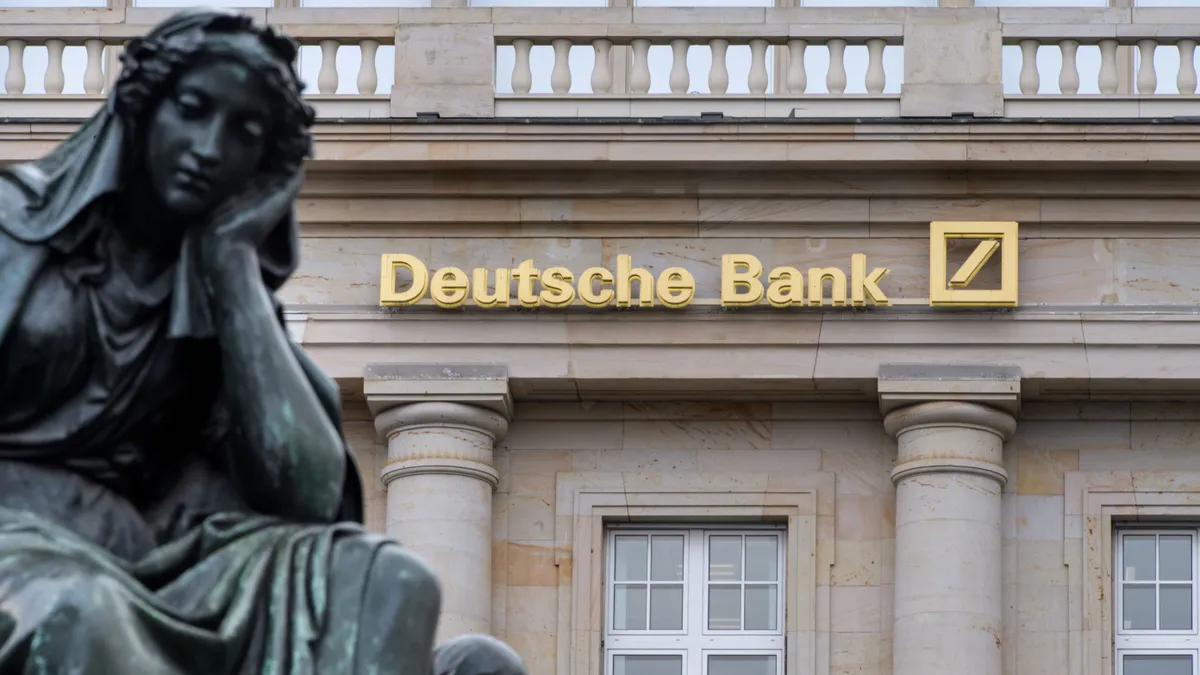Deutsche Bank will pay $75 million to victims of late sex offender and financier Jeffrey Epstein to settle allegations that the bank knew Epstein was up to no good while benefiting from his financial wealth, the Wall Street Journal reported.
Epstein, who first registered as a sex offender in 2010 following a 2008 conviction of sex crimes involving an underage girl, allegedly engaged in sex trafficking from the early 2000s until his final arrest in New Jersey in 2019.
Epstein died by suicide in jail, awaiting trial. Since his death, both Deutsche Bank and JPMorgan have been subject to lawsuits based on their relationship with Epstein, who was for several years a customer at each bank.
Per the settlement, Epstein victims who were ensnared in his sex trafficking ring from 2013 to 2018 while he was a Deutsche Bank customer would receive between $75,000 and $5 million, sources told the Journal.
The suit alleged the bank knowingly participated and benefited in Epstein’s trafficking “by providing the requisite financial support for the continued operation” of his crimes, according to CNBC.
“Deutsche Bank also knew that Epstein would use means of force, threats of force, fraud, abuse of legal process, exploitation of power disparity, and a variety of other forms of coercion to cause young women and girls to engage in commercial sex acts,” according to the suit. “Knowing that they would earn millions of dollars from facilitating Epstein’s sex trafficking, and from its relationship with Epstein, Deutsche Bank chose profit over following the law. Specifically, Deutsche Bank chose facilitating a sex trafficking operation in order to churn profits.”
A spokesperson for Deutsche Bank would not comment on the settlement.
In 2020, the bank settled a case related to its Epstein connection with the New York Department of Financial Services for $150 million.
"We acknowledge our error of onboarding Epstein in 2013 and the weaknesses in our processes, and have learnt from our mistakes and shortcomings," the bank said at the time.
Since then, Deutsche Bank has invested more than €4 billion to strengthen its control functions, operational processes and training, and has increased its financial crime staff to over 1,900.
In the fall, Deutsche Bank settled a shareholder lawsuit for $26.3 million that claimed the bank was light on oversight in doing business with “unsavory figures” like convicted sex offender Jeffrey Epstein, and that doing so caused its share price to drop.
Shareholders led by Yun Wang and Ali Karimi allege in the suit, filed in 2020, that Deutsche Bank “materially failed to implement effective [anti-money laundering and know-your-customer] controls,” particularly in its wealth management business, which “caters to the very rich.”
Eight claims against Deutsche Bank and six against JPMorgan that alleged the banks knowingly benefited Epstein’s sex-trafficking operations were dismissed in March, but a lawyer for one of his victims called the ruling “a monumental victory” for survivors of Epstein’s sex-trafficking scheme, as both banks had remaining claims to face.
With Deutsche Bank’s settlement, two separate Epstein-related lawsuits remain against JPMorgan, one filed by an Epstein victim and one by the U.S. Virgin Islands, where he had a home. JPMorgan CEO Jamie Dimon is set to be deposed for the suits.













